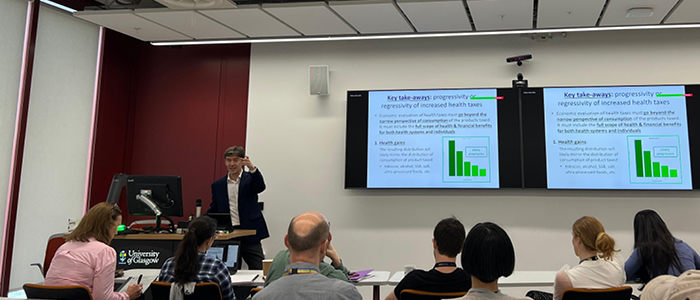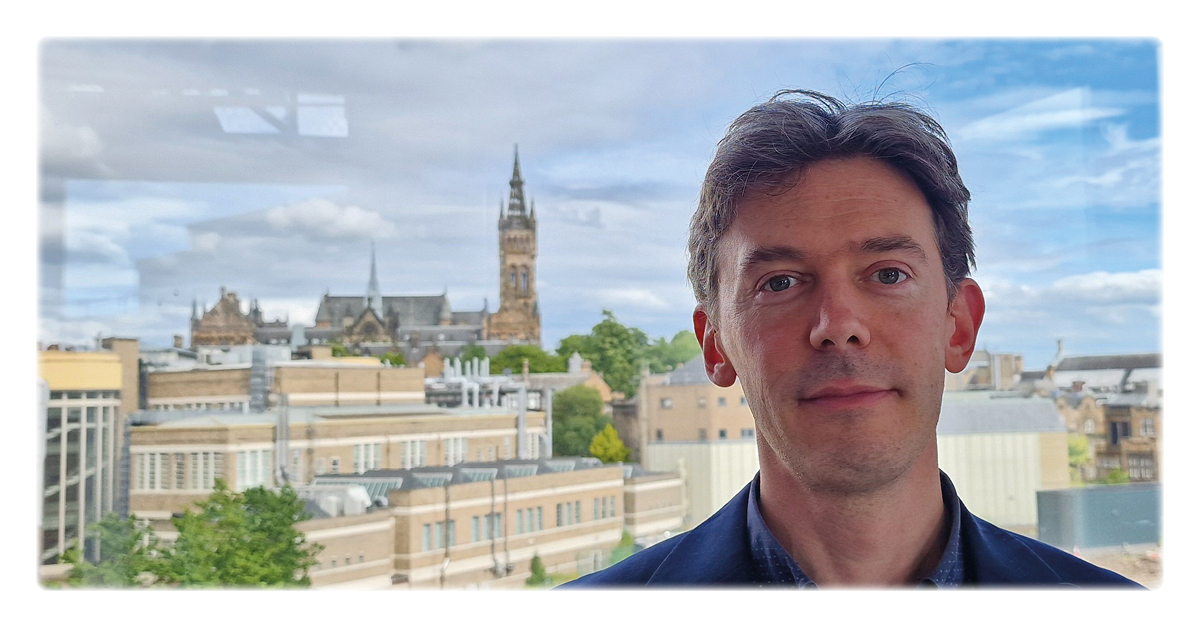Interview with Harvard's Prof. Stéphane Verguet
Published: 15 July 2024
Harvard T.H. Chan School of Public Health's Prof. Stéphane Verguet sat down with HEHTA's Heather Fraser to reflect on his recent visit to the University of Glasgow, talk about his career journey so far, and share some advice for aspiring health economists.
Stéphane Verguet is an Associate Professor of Global Health in the Department of Global Health and Population and a faculty member of the Center for Health Decision Science (CDHS) at the Harvard T.H. Chan School of Public Health. CHDS, like HEHTA, aim to promote more informed and systematic decision making in the use of health-related technologies and public health. HEHTA recently invited Stéphane to join the team at a number of internal workshops and to deliver lectures for the Maurice Bloch and GhESS Seminar series. The workshops encouraged insightful discussion on equity-informative evaluation and extended cost-effectiveness analysis, and the well-attended lectures allowed Stéphane to expand on his extensive research.
Heather Fraser (HF): Hi Stéphane, thank you very much for talking to us. On behalf of HEHTA and the wider UofG community, it’s been great having you in Glasgow. How have you been enjoying it here?
Stéphane Verguet (SV): I’ve been enjoying Glasgow very much - the weather has been co-operating this week! You have a beautiful campus and community; it has been wonderful walking through the Botanic Gardens and Kelvingrove Park.

HF: What inspired you to get into the field of global health and health decision science? Can you describe for us your journey?
SV: Yeah, so it was a little bit by chance: I was studying mechanical engineering, and during my PhD, I had one project that was on modelling the physics of vaginal microbicide gels to prevent the transmission of HIV. What happened subsequently was that I got really interested in the fields of global health, decision science, and priority setting, and so at this point I decided I wanted to use my mathematical and modelling skills to explore these areas.
"When possible, I also think it’s important not to shy away but to try to address and focus on the big problems and big questions."
HF: What are some of the key questions and challenges in health economics that you focus on, and how do they impact the lives of everyday people?
SV: What I’m focusing on is looking at how investing in health has broader consequences. In particular, how by having health interventions and investing in the health sector we can contribute to reducing inequalities and to other non-health benefits. How, under limited budgets, we not only can maximize health outcomes but also can maximize the redistribution of those health outcomes and redress inequalities, as well as improve non-health outcomes such as financial well-being and preventing medical impoverishment.
HF: What advice would you give to aspiring health economists?
SV: Excellent question – for health economists, but also perhaps for researchers in general, my advice would be to work on the few things that you are most passionate about - even if this means we don’t always get the right answers right away. When possible, I also think it’s important not to shy away but to try to address and focus on the big problems and big questions.
HF: Thanks, Stéphane - we hope to see you back in Glasgow soon.
First published: 15 July 2024
<< News


